Ghana
Ghanian officials said on Thursday that the $3 billion International Monetary Fund (IMF) bailout approved for the West African nation will help reset the economy and ease the economic hardship on its citizens.
The long-awaited bailout approved by the IMF to aid the government’s economic growth recovery plan, though “far from a magic solution wand” is “a crucial first step on the necessary journey of strong reforms, inclusive growth and relentless pursuit of our growth agenda,” Ken Ofori-Atta, Ghana’s Finance Minister, told an online briefing on Thursday.
The bailout programme signed with the IMF and to be disbursed in at least six tranches over three years will cushion the economic toll on Ghanaians who have protested the spiralling increase in the prices of goods.
With the first tranche of $600 million expected soon, Ernest Addison, Bank of Ghana governor, urged various sectors to support the government’s economic agenda.
“This is now the time to begin the work. The programme’s approval is just the beginning of the real work of building Ghana better,” Addison said at the briefing.
The IMF said it will be monitoring the implementation of the economic programmes anchored on three principles: restoring macroeconomic stability, ensuring sustainable growth for the macroeconomy and laying the foundations for stronger and more inclusive growth.
“This programme, policies and reforms together with the debt restructuring will help overcome immediate economic challenges and pave the way for a brighter future for all Ghanaians,” said Stephane Roudet, the head of the IMF’s mission to Ghana.
While Ghana’s minister of finance, Ken Ofori-Atta, and members of the IMF made the announcement in Washington, people in Accra urged the government to find solutions to deal with their most basic needs.
“Sometimes, because of the economic crisis, I can’t buy normal food,” said Obed Amofa, resident of the city, who complained that while his salary remains the same, the prices of basic products keep increasing.
And when consumers don’t have money, the commerce suffers.
“This year, everybody is complaining [that they] don’t have money. When they come, they see your goods and go,” commented Seth Bonney, a market seller of clothing and accessories in central Accra.
“I think the government should do something about it because the economy is so bad, and everybody is complaining,” he added.
One of West Africa’s regional hubs, Ghana has been reeling from an economic crisis as a result of soaring inflation, a weakened currency and rising public debt that is gulping most of its dwindling revenue.




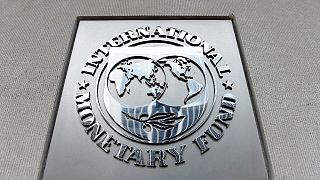
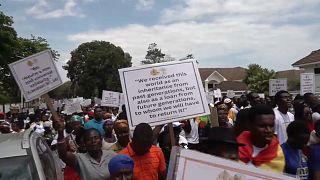
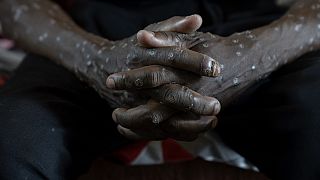
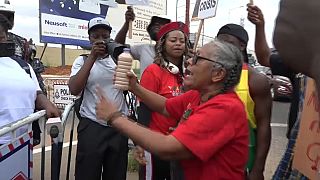
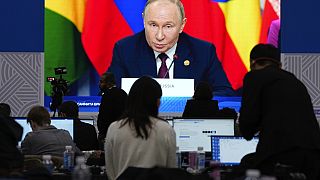
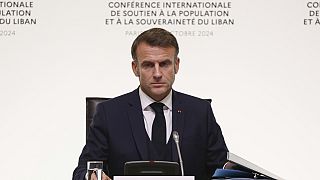
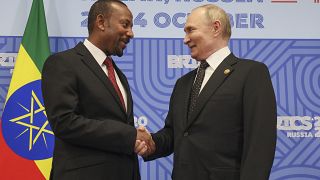
01:28
Putin says BRICS countries will drive economic growth in coming years
Go to video
Zimbabwe to compensate white farmers 20 years after land seizures
01:47
Ukrainian president presents 'victory plan'
01:13
Ivory Coast: Rising cocoa farmgate price fails to convince
01:05
Burkina Faso calls out foreign powers “deliberately exacerbating suffering” of Sahelians
01:15
Russia marks 2nd anniversary of annexation of four regions in Ukraine